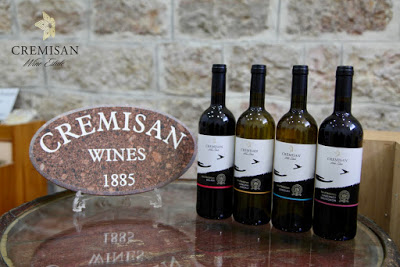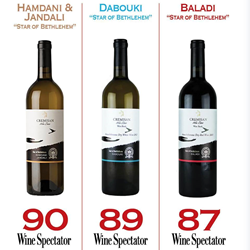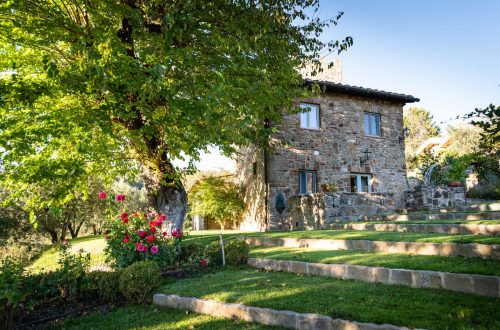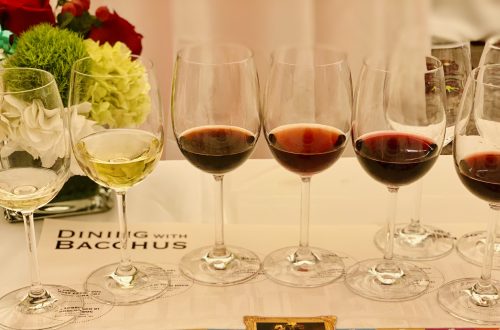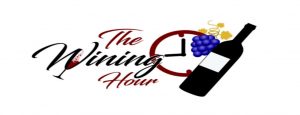Taste and Talk: Uncovering Cremisan Wine of Palestine with Terra Sancta
Cremisan: The Wine Star of Bethleham
Did you know that Palestine produces wine? Well, I didn’t. When I thought about wine coming from the Holy Land…I always thought of Israel. However, I was in for a surprise. I had the pleasure of speaking with Jason Bajalia from the Terra Sancta Trading Company, which specializes in beer, wine and spirits from Eastern Europe and the Middle East. Upon hearing this, I was happy to have Terra Sancta on #WiningHourChat and the Wines of Cremisan, Palestine were the feature.
Cremisan Cellars is located in the Cremisan Valley in Bethlehem between West Bank and Jerusalem. Cremisan is also home to The Salesian Sisters Convent and School and the Salesian Monastery, both founded by Don Bosco. Don Bosco, also known as St. John Bosco, was an Italian Roman Catholic Priest who spent his life trying to improve education for all and helping the disadvantaged. He Founded the Salesians of Don Bosco or the Salasian Society, which is responsible for many educational and charitable works throughout the world. Today, the Salasian Society is the third-largest missionary organization in the world.
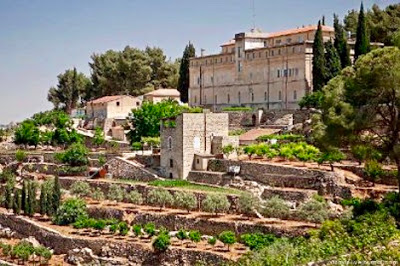 |
| Cremisan Winery, Palestine |
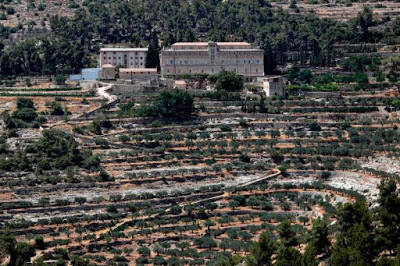 |
| Cremisan Winery and Monastery |
 |
| Cremisan Wine Label |
 |
| Cremisan Wine Label outside of U.S. |
The Wining Hour Tasting of Cremisan Wines
Star of Bethlehem Hamdani Jandali
 Hamdani Jandali is a perfect way to begin exploration of Palestinian wines. Made with the indigenous Hamdani and Jandali grapes, this white wine is undergoes traditional vinification methods. Following is fermentation in stainless steel tanks with controlled temperature. I never tasted the grapes before, so it was exciting to try something new. Tropical notes of peach and pineapple on the nose, and apricot, green apple and lemon zest on the palate. No sign of oak, but clean, crisp and light. Beautiful minerality and balanced acidity. This wine scored 90 points from Wine Spectator and it was easy to see why. I paired Cremisan Hamdani Jandali with hummus. After all, if it grows together, it should be paired together. This wine is also great with soft cheeses, fish and as an aperitif. 13.5% ABV
Hamdani Jandali is a perfect way to begin exploration of Palestinian wines. Made with the indigenous Hamdani and Jandali grapes, this white wine is undergoes traditional vinification methods. Following is fermentation in stainless steel tanks with controlled temperature. I never tasted the grapes before, so it was exciting to try something new. Tropical notes of peach and pineapple on the nose, and apricot, green apple and lemon zest on the palate. No sign of oak, but clean, crisp and light. Beautiful minerality and balanced acidity. This wine scored 90 points from Wine Spectator and it was easy to see why. I paired Cremisan Hamdani Jandali with hummus. After all, if it grows together, it should be paired together. This wine is also great with soft cheeses, fish and as an aperitif. 13.5% ABVStar of Bethlehem-Dabouki
Dabouki is another autochthonous dry white wine made the same way as Hamdani Jandali. It is made from 100% Dabouki grapes, which were thought to have originated in Armenia. This wine is medium-bodied with tropical fruit and wet stone on the nose. Apple, pear and anise on the palate. Clean finish with good acidity. This wine would pair with fish, chicken, vegetable dishes and mature cheeses. 13.5% ABV
Star of Bethlehem-Baladi
Finally, we tasted this Palestinian red wine made from 100% Baladi grapes. Baladi, when translated from Arabic, means “native”, “indigenous” and/or “of the country,” which helps us to emphasize its authenticity. Baladi has earthy notes, along with red berries and plum on the nose. The palate also has plum, raspberry and other wild berry fruits. Complex, yet elegant with a persistent finish. Baladi is a medium bodied wine with 12.5% ABV.
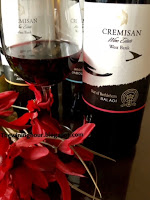
Jason discussed the versatility of these wines and how they pair well with the regional gastronomy. He elaborates, “The Palestinian way of eating, like throughout the Mediterranean, consists of small plates of dips, salads, nuts, and cheeses called Mezze. The Dabouki and Hamdani Jandali are made for mezze. After mezze come the grilled meats, and the Baladi red is the perfect accompaniment.” I couldn’t agree more, as I paired my Baladi with grilled lamb chops.
These wines represent the land of Palestine, in that they are all made from indigenous varietals, and the wines are named after the actual grapes. According to Terra Sancta, Jandali, for example, is said to “date back to the time of King David and the Torah and the wine served at The Last Supper is thought to be Dabouk. Cremisan was the first winery to return to making wine from these grapes.” These Palestinian wines are, without question, an expression of their territory, as the distinct minerality unique flavor profile exude.
Find Cremisan Wines in restaurants and retail outlets in FL, CA, NY, NJ, PA, MN, DC, MD, VA, AZ, CO, as well as online at http://somegoodwine.com or http://67wine.com . Alternatively, you can also reach out to Terra Sancta Trading Company for more information about Middle Eastern and Eastern European wines.


